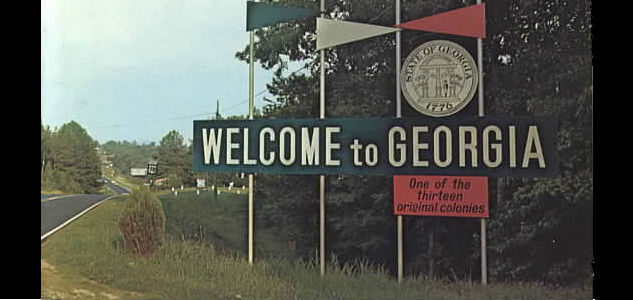

Welcome to Georgia where no party other than the Republicans and the Democracts have been on any state ballot since at least World War Two. Thanks to a great post by Richard Winger of Ballot Access News we have learned about Georgia’s status with third party access laws. Take a look:
 Janet Munda, Supervisor of Elections and Registration for Cherokee County, Georgia, will speak on October 15 about Georgia’s ballot access laws for minor parties and independent candidates. The event is sponsored by the county Libertarian Party, and will be at the Best Western, conference room, 705 Transit Avenue, Canton. Canton is north of Atlanta.
Janet Munda, Supervisor of Elections and Registration for Cherokee County, Georgia, will speak on October 15 about Georgia’s ballot access laws for minor parties and independent candidates. The event is sponsored by the county Libertarian Party, and will be at the Best Western, conference room, 705 Transit Avenue, Canton. Canton is north of Atlanta.
The Georgia record for ballot access is very bad. The laws have prevented any minor party candidates from appearing on the ballot (for regularly-scheduled elections) for U.S. House ever since they were written in 1943. This is shocking, but the mainstream media of Georgia has consistently been uninterested in publicizing this. There has never been any other state in U.S. history which had such a long record of two-party monopoly for any type of federal elected office. Ohio was defeated in the U.S. Supreme Court in 1968, because it had kept all minor party and independent candidates off the ballot for President for the previous 19 years. But a 19-year deficit is obviously not nearly bad as a 71-year record. Thanks to Don Webb for this news.
A local newspaper had a brief write-up on the Georgia ballot meeting as well. It gives a bit more information:
Elections director Janet Munda has graciously agreed to come and speak to the Cherokee Co Libertarian Party about the laws in Georgia that hamper 3rd party and independent efforts to get on the ballot. We hope that you will join us Oct 15th to learn about the laws governing this and why Georgia is consistently ranked on of the worst states to try to get a candidate on the ballot.
Wikipedia’s page on Elections in Georgia had a bit of interesting information about the era when Republicans became the state’s dominant party:
Historically, elections at all levels of government in the U.S. state of Georgia was dominated by conservative white Democrats in the period between Reconstruction and the end of the New Deal Coalition. For decades, Republicans were a tiny minority, generally associated with Union military victory at the end of the Civil War. Beginning in the 1950s, the credible enforcement of new laws inspired by the Civil Rights Movement began to steadily erode the preponderance of Democrats in elective office in Georgia. The repeal of Jim Crow laws allowed previously disenfranchised African Americans to vote in elections and be active in politics. As many of these people joined with some white Democrats to work for more immediate liberal and pluralistic policies, a growing number ofconservative white Democrats who supported either gradual change or none at all became Republicans, making Georgia politically competitive throughout the late 20th century. By the end of the 1950s, with the strong showing in Georgia by Republican President Dwight D. Eisenhower in the 1956 presidential race, the Republican Party appeared positioned to gain even more ground in the coming years. The Democratic Party did not carry the state from the 1960 until Jimmy Carter ran for the White House 16 years later.
Beginning with Barry Goldwater’s presidential bid in 1964, the Republican Party began making inroads in Georgia. In time, the Republican Party of Georgia would field competitive candidates and win races for seats in the U.S. Senate and U.S. House of Representatives. Widespread migration from northern states to the Atlanta suburbs later permitted Republican candidates to win races for seats in the Georgia General Assembly.
Leave a Reply